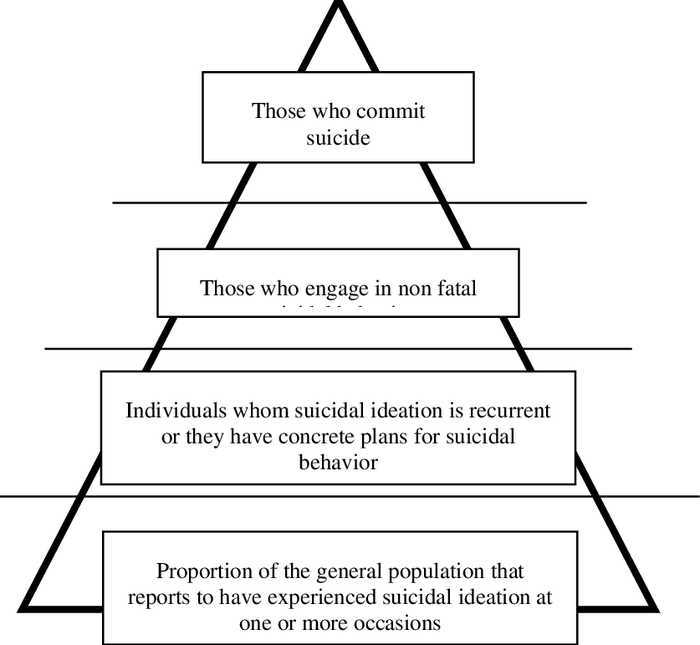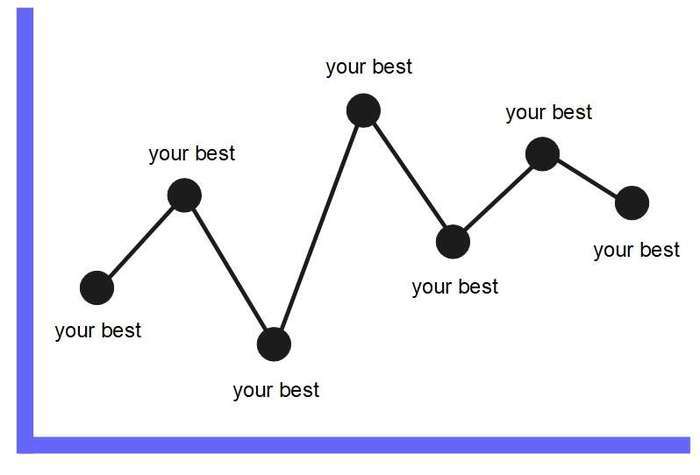Self care: Your last breath
Please come now I think I'm falling
I'm holding on to all I think is safe
It seems I found the road to nowhere
And I'm trying to escape
I yelled back when I heard thunder
But I'm down to one last breath
And with it let me say:
Hold me now
I'm six feet from the edge and I'm thinking
Maybe six feet ain't so far down.
Creed - Six feet down
Have you felt this way before? From experience I can say that once you have reached the point where you have to decide between taking the last step or not, it is too late. A random "last thought" can tip everything with no way back.
I don't believe in all the helplines, emergency help against suicide and good advice about looking the "good things in life". Because this doesn't mean anything anymore:
- The pain has become so great that the only thing you need is to stop it.
- Your own principles stand in the way of looking at yourself in the mirror for one more second.
- Shame and humiliation is so great that it is unbearable.
- The addiction that has kept you alive is not available anymore.
The thought has been there for a long time: What if...
Then everything would end, no more pain, betrayal, shame. Peace at last.
When it comes to the final journey everyone is alone, everyone must walk it for themselves. No logical thought process towards those who you are going to fail, hurt and inflict pain on is good enough a reason. You have already failed them and caused enough pain. The world will be a better place without you.
I also do not believe in statements that suicide attempts are a "cry for help" and professionals may disagree with me. This is armchair psychology that is only supposed to disarm the seriousness behind it, and makes me irritated. Just like with everything else in life, there are people who are good at one thing and those who are not. Taking a life is not that easy if you don't have experience doing it. This also applies to your own life.
Of course, someone who plans to take their own life needs help. It is like saying that any kind of illness is the body is a "cry for help". Vitality has stages. Everyone is ill in the course of life, to varying degrees. There is also a varying degree of what an organism can tolerate: It is Individually different. Some become seriously ill and cannot be saved. Why should it be any different with the psyche? - The brain is our most advanced organ and (health) care in this area is one of the most complex.

As we clearly see, there are far fewer people who actually take the final step than those who have only thought the thought a few times.
I think those who actually end up taking their own lives are strong and determined people. They are not "cowardly and irresponsible egoists."
They no longer live in lies and diversion but take a position on their own finality. ALL of us are going to die one day. We do not know when it will happen, but we have the opportunity to take this event into our own hands. Beyond that, there is not much that one decides in this life. You have little influence on:
- If you have been abused as a child (or adult).
- Lack of love from those who were supposed to look after you.
- Your upbringing and the environment that shaped you at a young age.
- Poor conditions meant that you could not get the necessary follow-up.
- Being in the wrong place at the wrong time changed your life.
- That your well-intentioned choices had unforeseen bad consequences.
- Prolonged and serious illness, both "physical" or "mental".
- That people who were close to you have failed and deceived you.
- And much more...
But then some people come out of it strengthened. If you hear their story, you might think "if I had to experience this, I would rather have taken my life". Again, there are different degrees of vitality and mental health.
I have heard colleagues talk about lucky survivors of a suicide attempt: "All the patients who have tried to take their own lives by jumping from a high bridge regretted it the moment they took the last step."
Well, I have experienced the opposite: People are closely observed for a longer period of time because they have no regrets, but are distraught that life has become even worse, even more painful, with no hope that this will end.
Until much later... Because if they make the journey and survive, things CAN get better:
- Find new hope
- Become your own best friend
- Shift focus to things and people that are important
- Find meaning in life again
- Joy and gratitude take over for the bad
But how to get there?
I call it housekeeping.
If you treat your body like a garbage can (just like someone lives in a garbage can), pests will come and it will stink. Infection, disease and decay are the result. No one enjoys living like this. But man is adaptable and adjusts to his surroundings.
Once it would have been enough to take out the trash, collect the mail, pay bills, walk the dog, have a chat with the neighbor. But NOW it has become too much: There are piles of rubbish everywhere, the mail and invoices have turned into a chaos of debt collection notices, the dog has died and the neighbor has distanced himself.
People are, to varying degrees, good at fixing their house. Some have taken water over their heads, but don't understand it and think they have to live like this. Others just don't have the necessary resources to handle even small tasks.

The psyche is – just like the body in general – not static: How much you can perform will vary from day to day. If you have gone astray, it will require EVEN more resources to get back to where you have been. Or where you "should" develop towards.
Some goals may be to acknowledge:
- Your best days aren't over, there's more to come.
- Life has something more worth living to offer.
- Even if illness, injury, pain is present, things will get better.
- There are coping mechanisms that work for you!
So take the time to go outside for a walk and think about the following:
- How good is my mental health?
- Is it time for housekeeping?
- Are there things in my life that I should resolve now that I (still) have resources for?
- Will the things I do today help me in the future?
- How can I avoid ever getting so far that I stand six feet from the edge?
I WILL HEAR FROM YOU IF YOU WANT TO DISCUSS A TOPIC.


All comments are moderated before being published. Your email will not be visible